Dragon’s Dogma 2 pawns and how they work
They babble as much as I would if I were hangin’ with my hero.
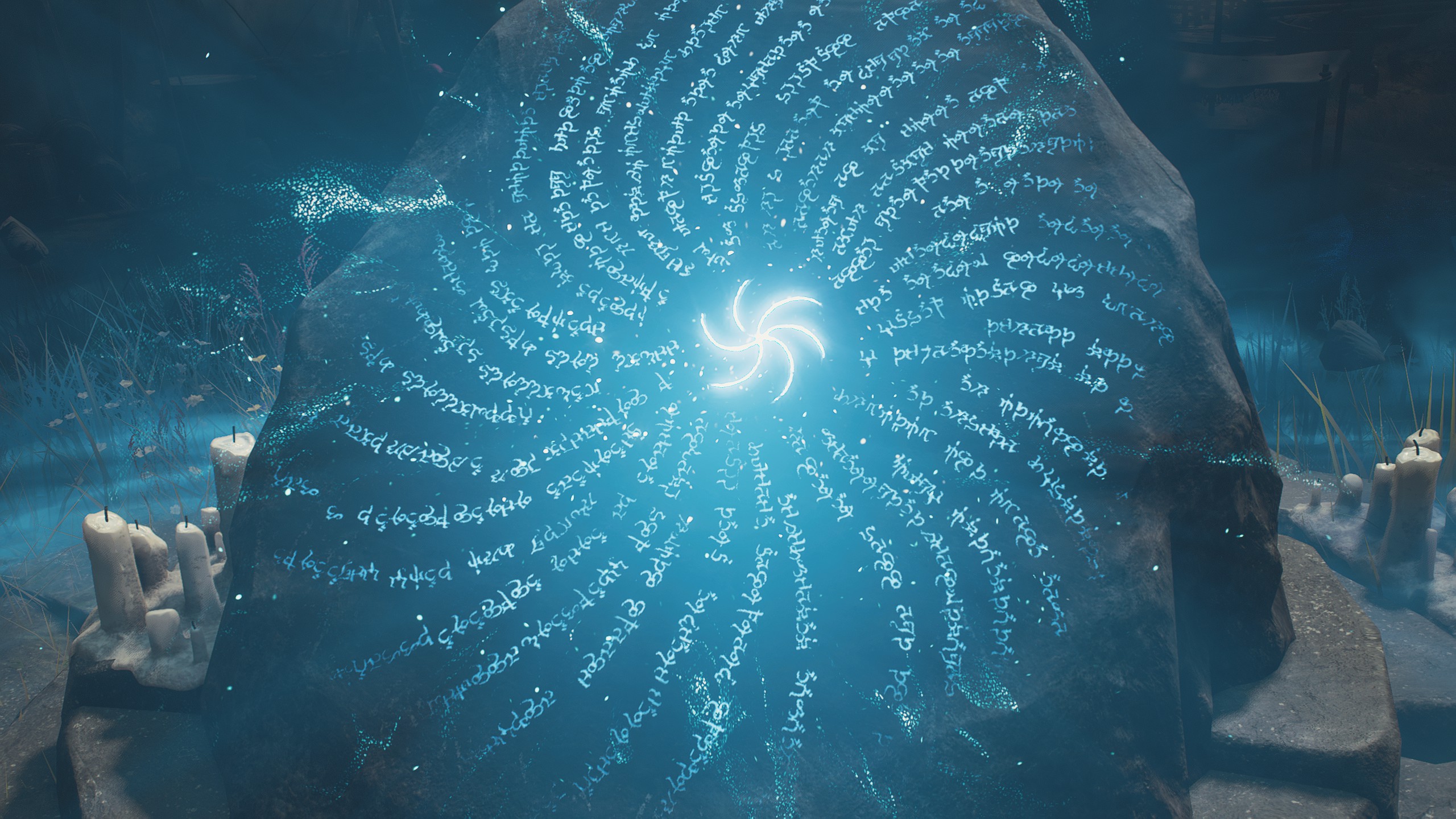
The pawn system is the beating heart of Dragon’s Dogma 2 and its predecessor. Although this is a sternly single-player fantasy adventure, you’re never really alone with these chatty, high-five-hungry NPCs by your side to aid in battle and help guide your path.
These immortal characters travel between realms and exist solely to serve the true Arisen (that’s you). They aren’t just mindless husks dragging their feet as they follow you through the underbrush; they can gather items, lead you to hidden treasures or quest locations, and even provide information to make your travels easier.
The pawn you create at the start of the game will stick with you to the end, so granting them the skills and personality you deem most valuable is key. Additionally, making them bulky will boost their carry weight, and that’s a blessing. Making them hot also helps since you have to look at them for 40+ hours, and since they'll be adventuring with other players, giving them a stupid name might earn you bonus points.
All in all, pawns keep you company, carry your junk, kick monster butt, give great high fives and elbow bumps, and serve as connections to the Dragon’s Dogma 2 community. Here's how they work.
Pawn inclinations and how to change them
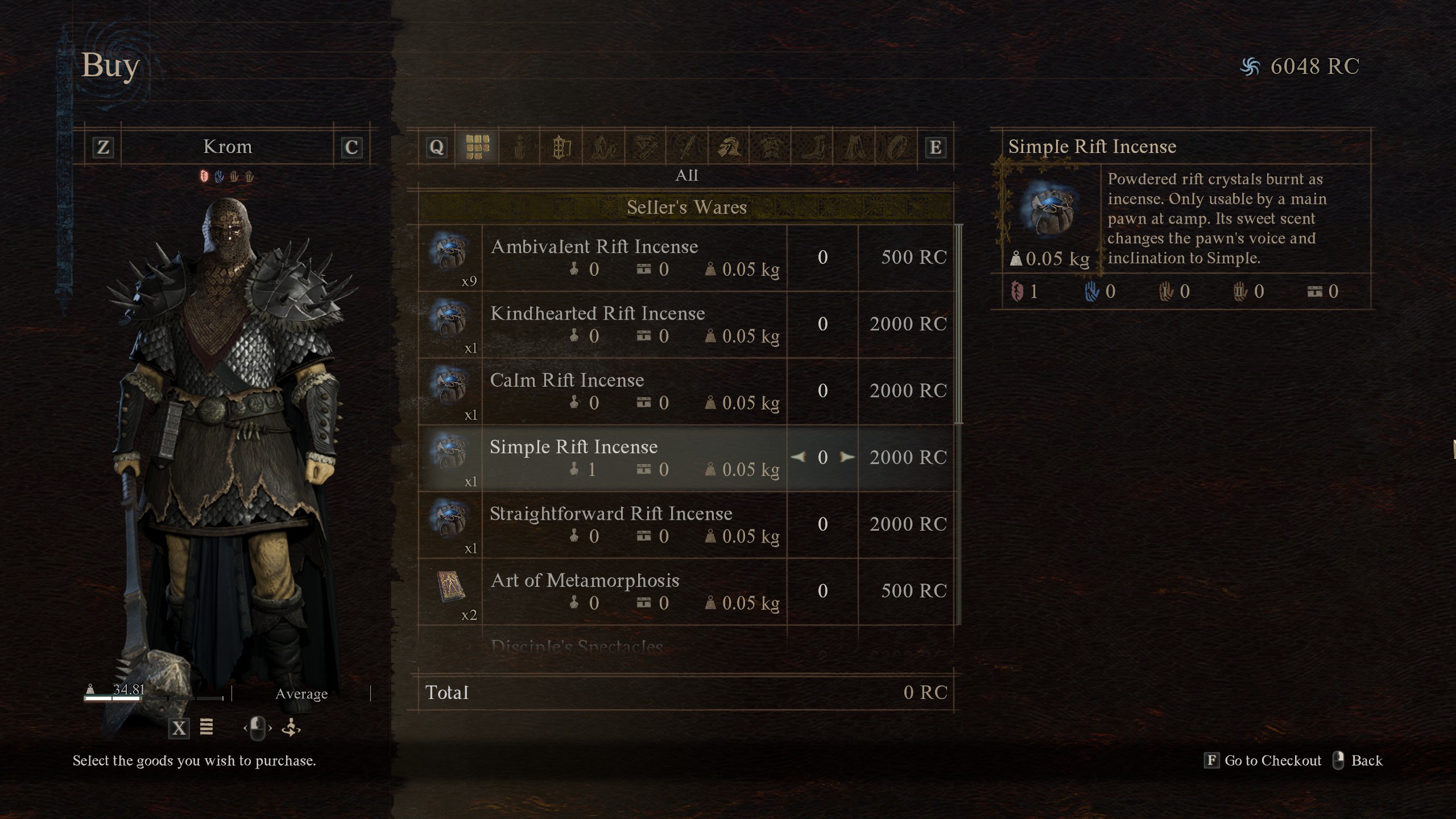
Once you’ve designed your ultimate companion, you have to choose their inclination. This dictates the more intricate parts of their personality and behaviour.
There are four pawn inclinations:
- Kindhearted: These pawns prioritise support, buffing the team and holding off enemies.
- Calm: Strategic-minded pawns that prioritise defense and evasion.
- Simple: Pawns that love exploration, item gathering, and will open chests every chance they get.
- Straightforward: Perceptive pawns that excel at spotting enemies and rush into battle whether you like it or not.
The inclination you choose for your main pawn is entirely up to you and your playstyle, but adding pawns with different inclinations as you explore can provide some much-needed balance to your party. You’ll also hear the same voice lines over and over with pawns of the same type, so it's better to mix it up.
If you’d like to change your pawn’s inclination, the earliest time to do so is in Vernworth. Beside the Riftstone you’ll find a merchant called Neomith selling Rift Incense that lets you alter your pawn's inclination for 2,000 RC a pop.
Pawn vocations and specializations
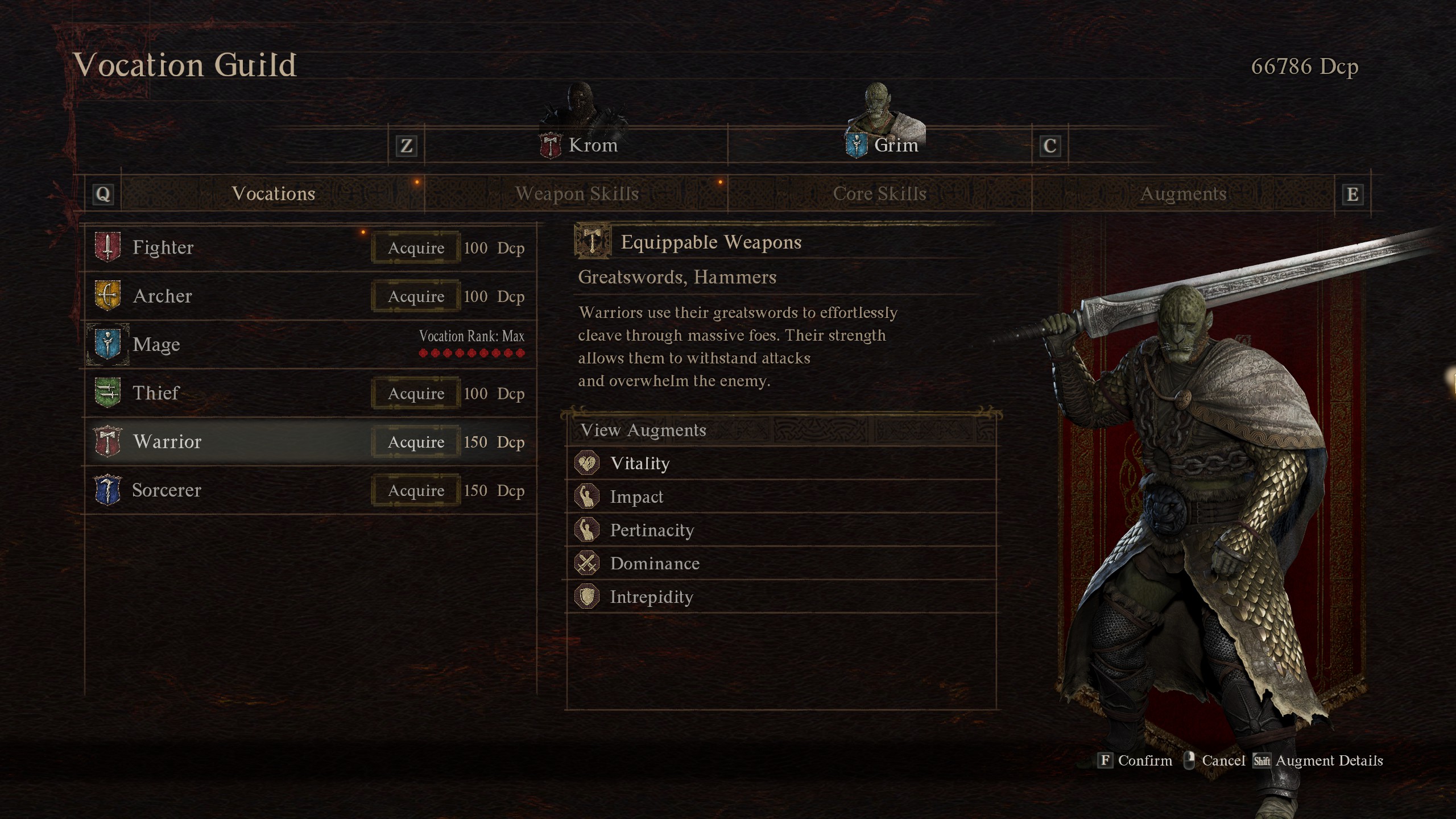
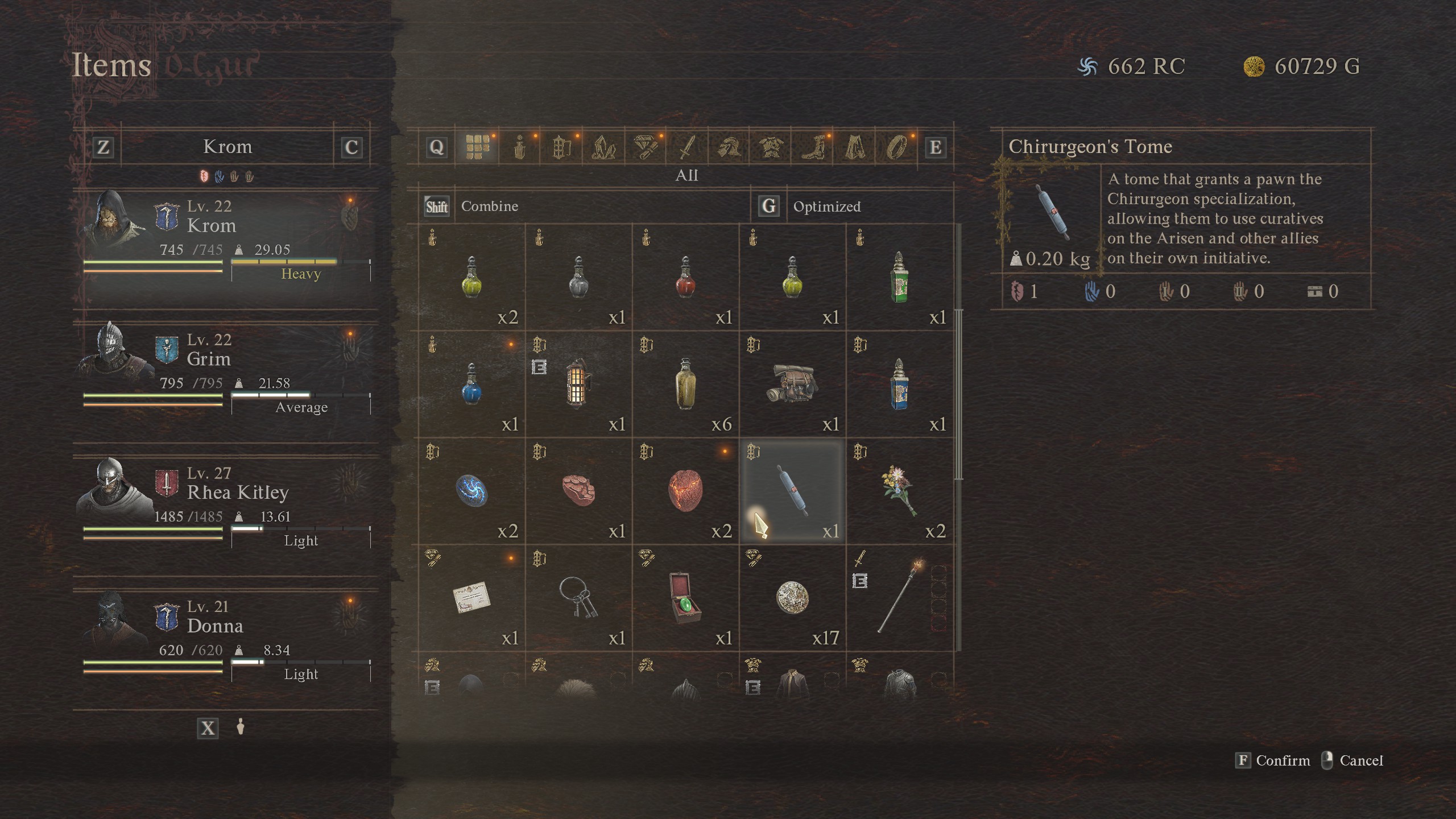
Pawns can choose from the same starting vocations as players: Fighter, Mage, Thief, or Archer. By progressing to Vernworth and completing the Vocation Frustration quest, you'll also unlock two advanced vocations that they can pick from: Warrior and Sorcerer. Unfortunately, advanced vocations such as Magick Archer, Mystic Sprearhand, Trickster, and Warfarer, are only available to your Arisen.
Specializations are skills only pawns can acquire that help give them an increased level of independence. For example, the Chirurgeon specialization allows a pawn to use curatives on you and the other pawns in your party. Through doing certain quests in the game, such as helping Flora craft fruit roborant in Melve then finding her in Vernworth market, you can get tomes that will let you apply a specific specialization to one of your pawns.
How to hire pawns and use Riftstones
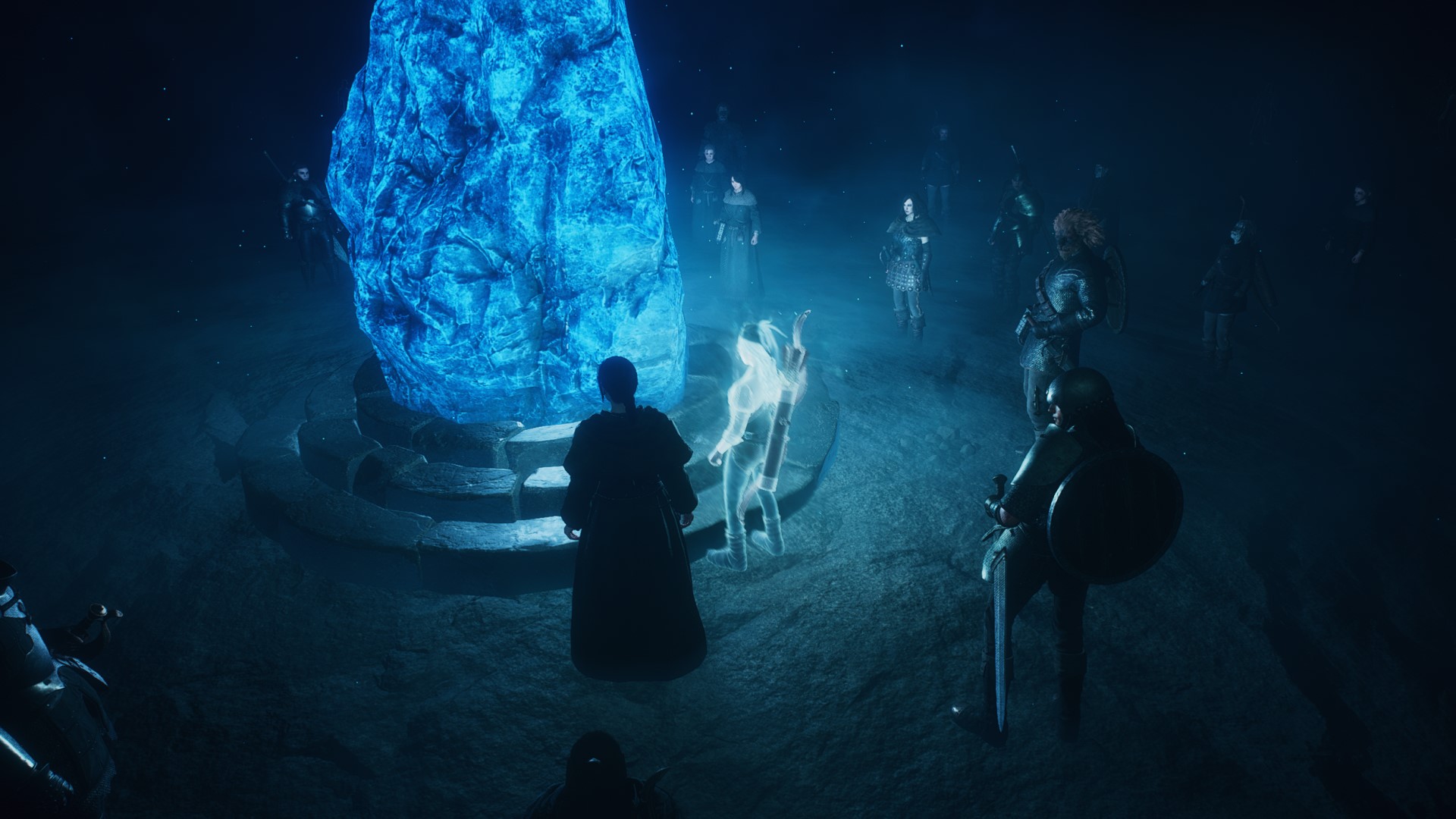
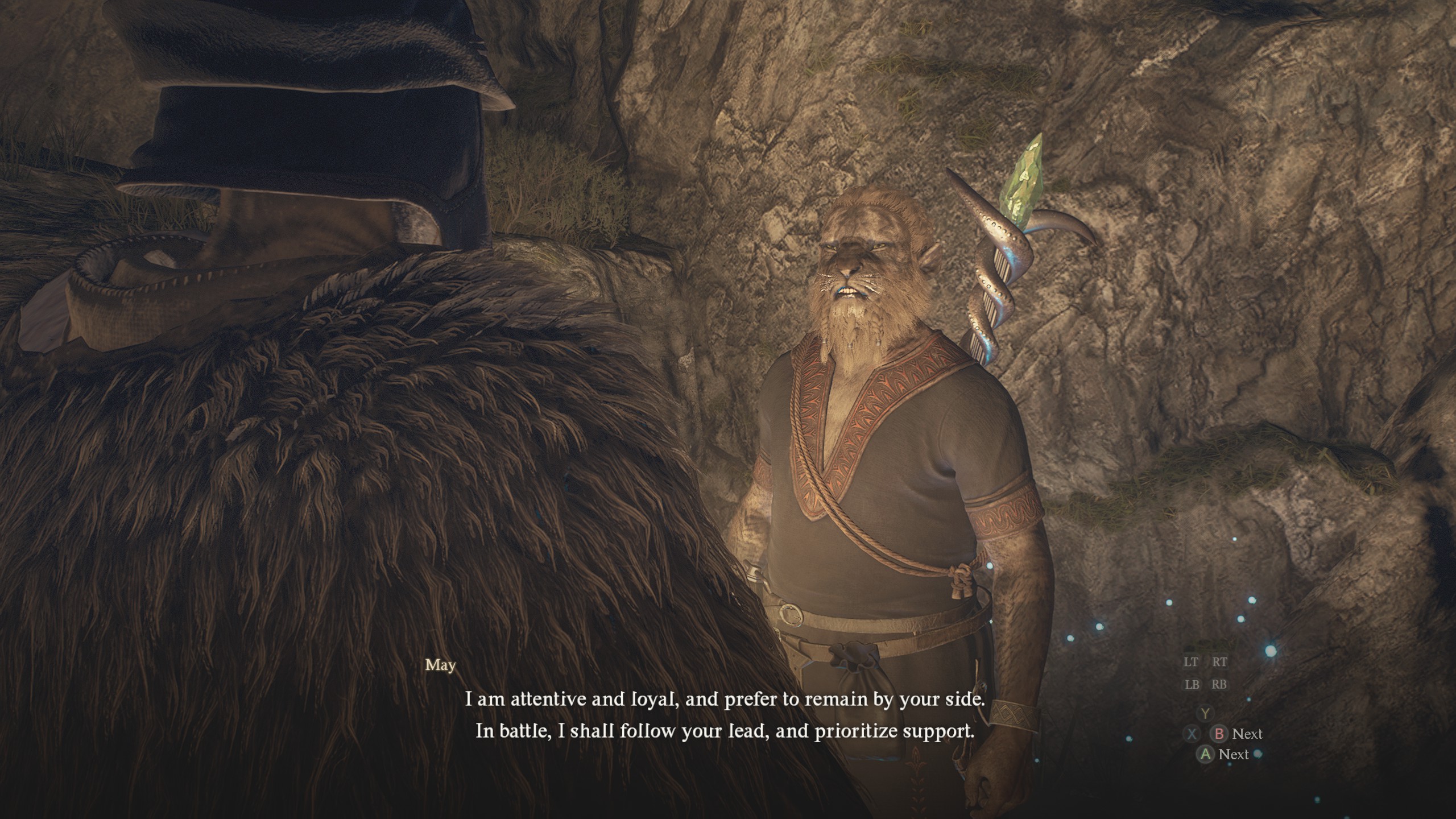
While exploring you’ll stumble on Riftstones in both cities and out in the world. Touching these monuments transports you to the place where pawns dwell, allowing you to summon new pawns to accompany you on your journey—basically a pawn job board. It's worth noting that each Riftstone specialises in a particular type of pawn in terms of inclination and physical build, and you can see this list by viewing Linked Riftstones at the big stone in Vernworth.
You can hire two pawns at a time. This is free if they’re the same level as your Arisen or below, but it'll cost you RC—or Rift Crystals—if they're above your current level. This rare currency can be earned by resting at inns, completing quests, or defeating certain monsters like the wight. Your main pawn will also earn Rift Crystals while in the employ of other players.
When interacting with a Riftstone, you’re also able to set a pawn quest. This is a task given to your main pawn while he’s hanging out with another player. You can decide on what the task is—like killing a specific monster, for example—and set a reward for the Arisen who completes it. This is a great way to earn valuable rewards passively.
It’s important to remember that other players' pawns in your party will not level up. Once you outlevel your guest pawns, it’s best to find a Riftstone and swap them for stronger ones. When you surrender a pawn, you can also give them a farewell gift from your inventory to take back to their master. Try to be nice and not slip me a dirty doo-doo handkerchief after my pawn saved your butt from a hulked-out cyclops.
Forgotten Riftstones and unique pawns
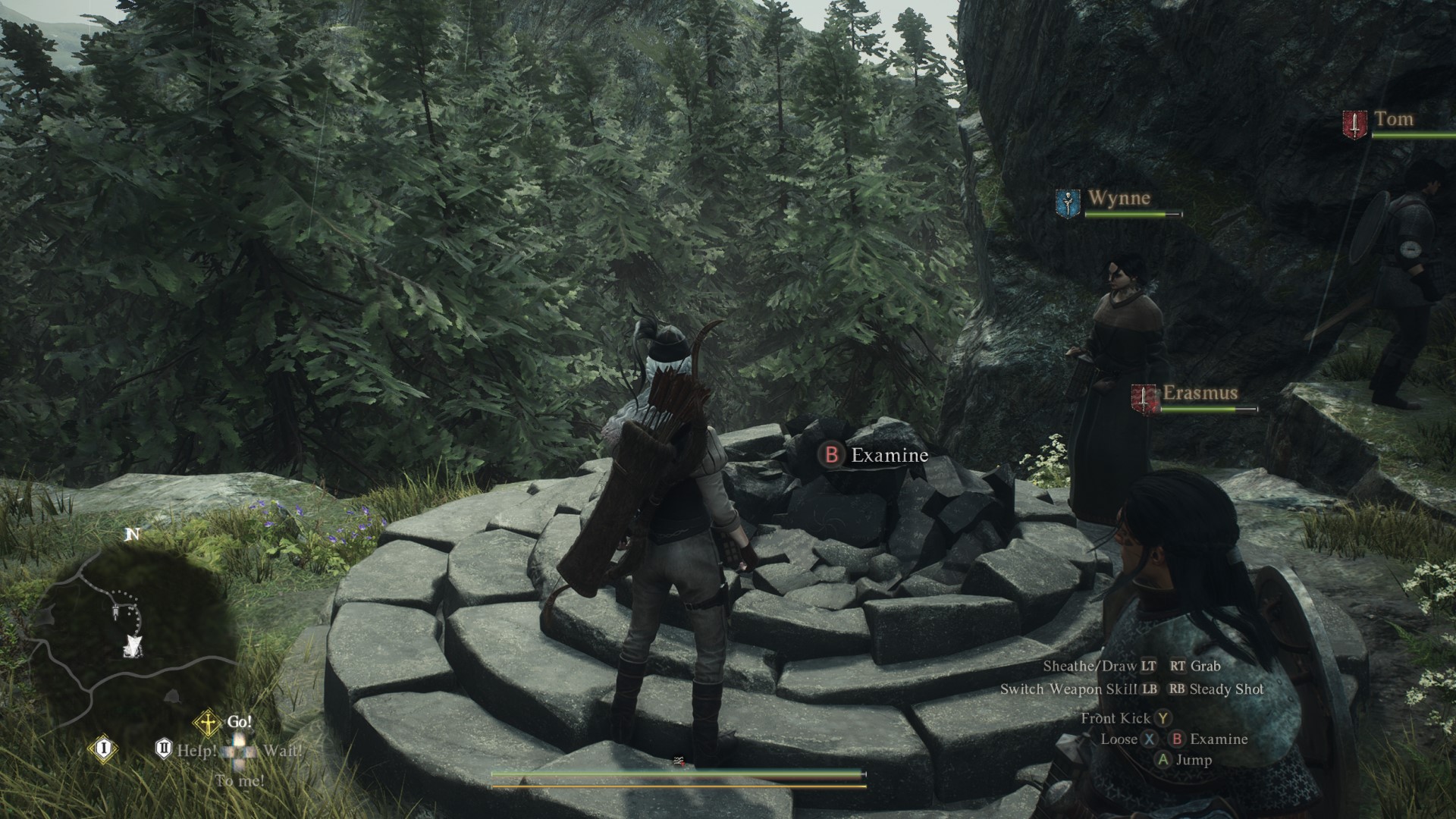
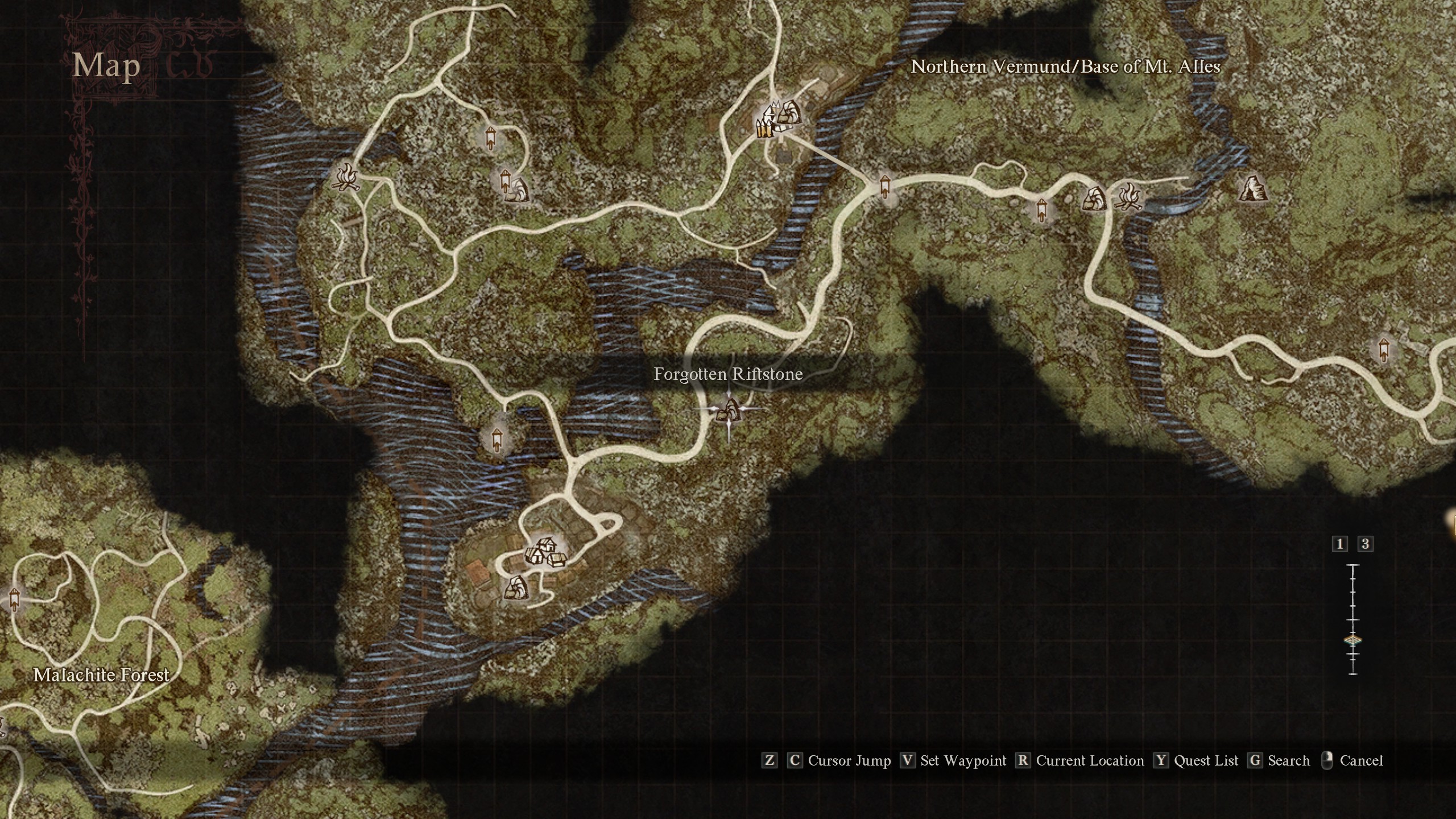
You’ll sometimes stumble on Forgotten Riftstones while out in the wilds. When interacting with these ruined artifacts, one of two things will happen: either the Riftstone will be restored and useable again, or a ridiculously high-level pawn will be summoned, causing the Riftstone to disappear for good. You’ll be able to hire this pawn for free regardless of their level and the high quality of their gear.
So what's the best pawn party composition?
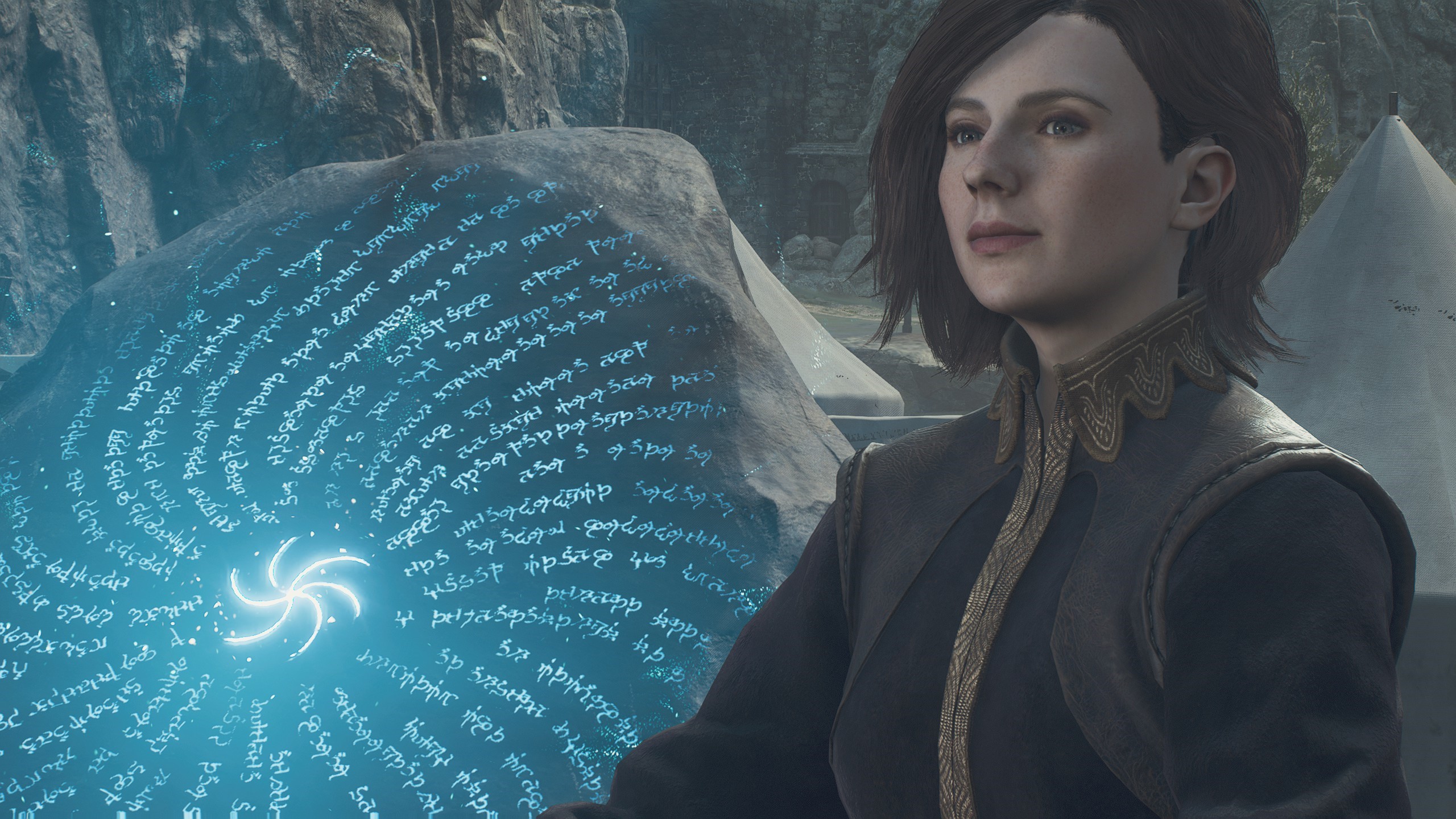
While you could technically create a party of all Fighters for Hulk Hogan levels of smackdown, you’ll quickly find that balance is key. Actually, no, not balance exactly—you just really need a Mage in your party at all times, no matter what.
Not only can these spellcasters heal you, but they can imbue your weapons with an element. This is crucial. Many enemies in Dragon’s Dogma 2, such as slimes and phantoms, can only be wounded when you're wielding elemental damage. There’s no reason to leave the magic user at home when the world is so full of things they could hurt. Not to mention, the Mage Meister's Teaching is the Celestial Paean spell, which grants partywise damage reduction and infinite stamina.
Besides your compulsory Mage, having a Fighter or Warrior is also important for keeping enemies occupied in melee, especially if you're playing a spellcaster. But besides that, party composition is all down to you.
Keep up to date with the most important stories and the best deals, as picked by the PC Gamer team.
Carley has been a professional Japanese > English translator for over a decade, working largely in the pop culture sphere. In May 2020, she joined the team at OTAQUEST, specializing in lesser-known aspects of Japanese pop culture, rambling about retro games, forgotten anime series, and Tokyo’s indie musicians in her first official paid gig as a staff writer. She continues to share her love for gaming by contributing hundreds of articles to sites such as Siliconera and VGKAMI.
Carley spends her free time gaming with her husband, scoping out breweries and wineries, and writing self-indulgent fanfiction. She prefers lore-heavy RPGs and walking sims and has only played Dragon Age: Inquisition 13 times. Her favorite Final Fantasy game is all of them.
- Sean MartinSenior Guides Writer


